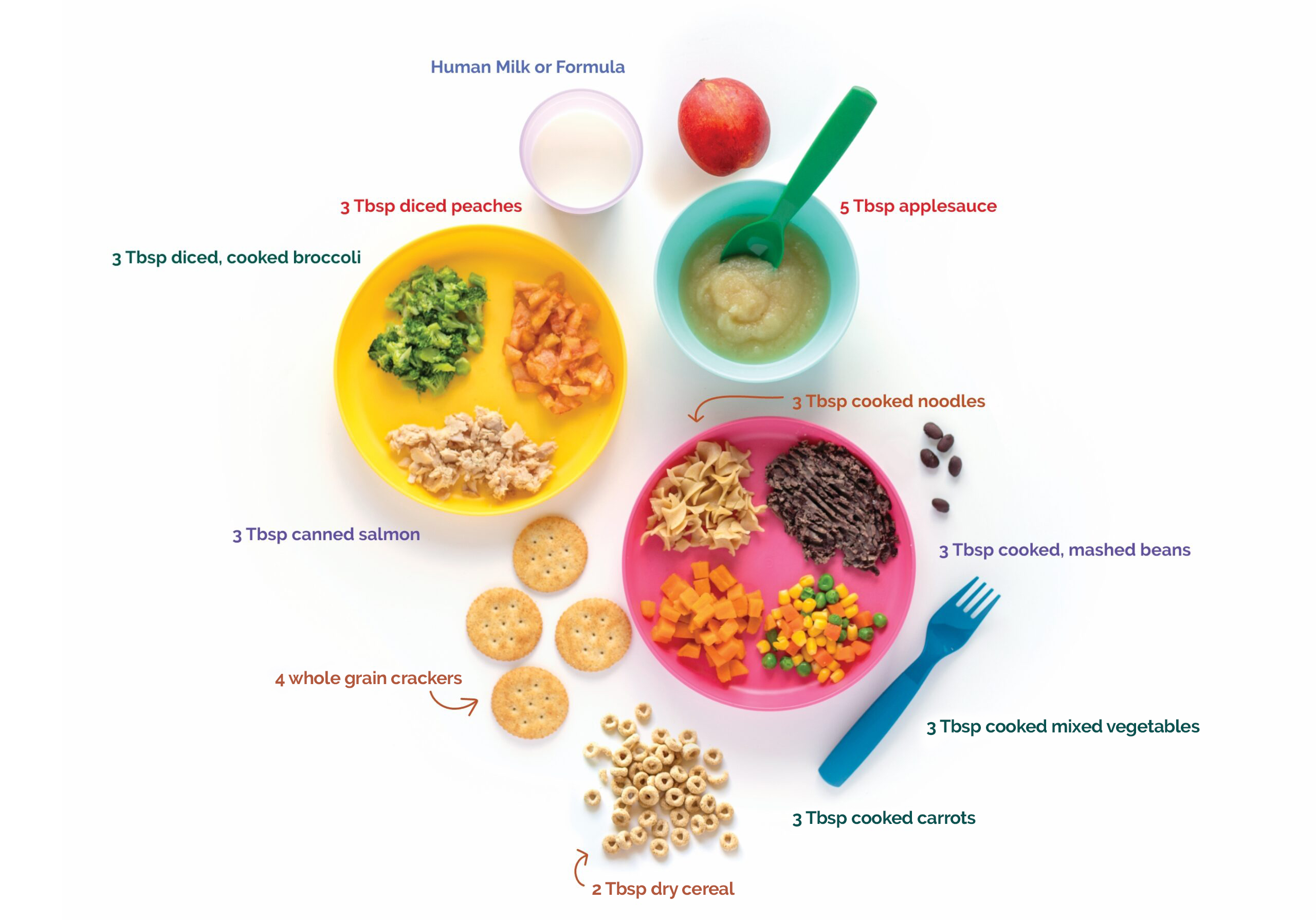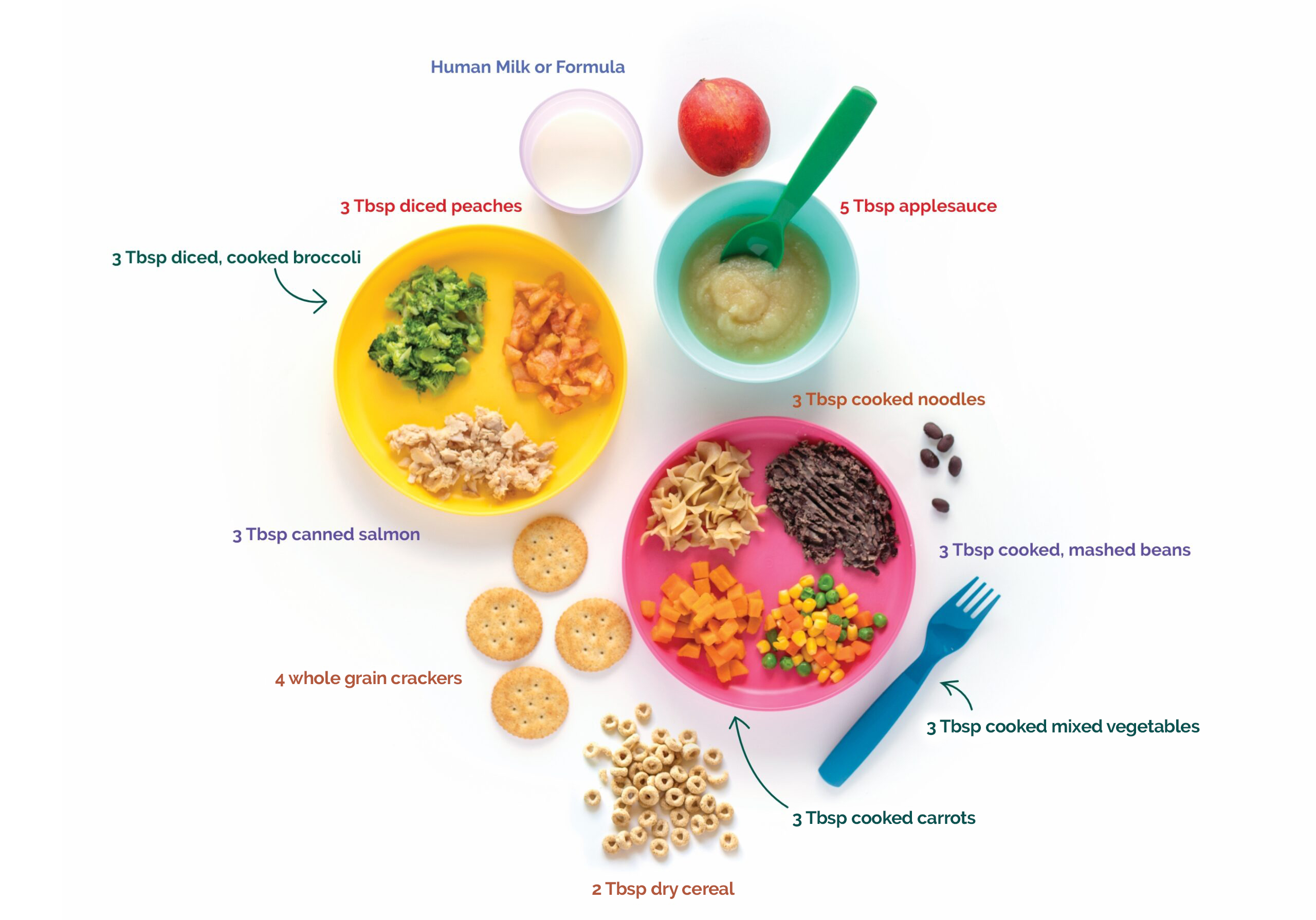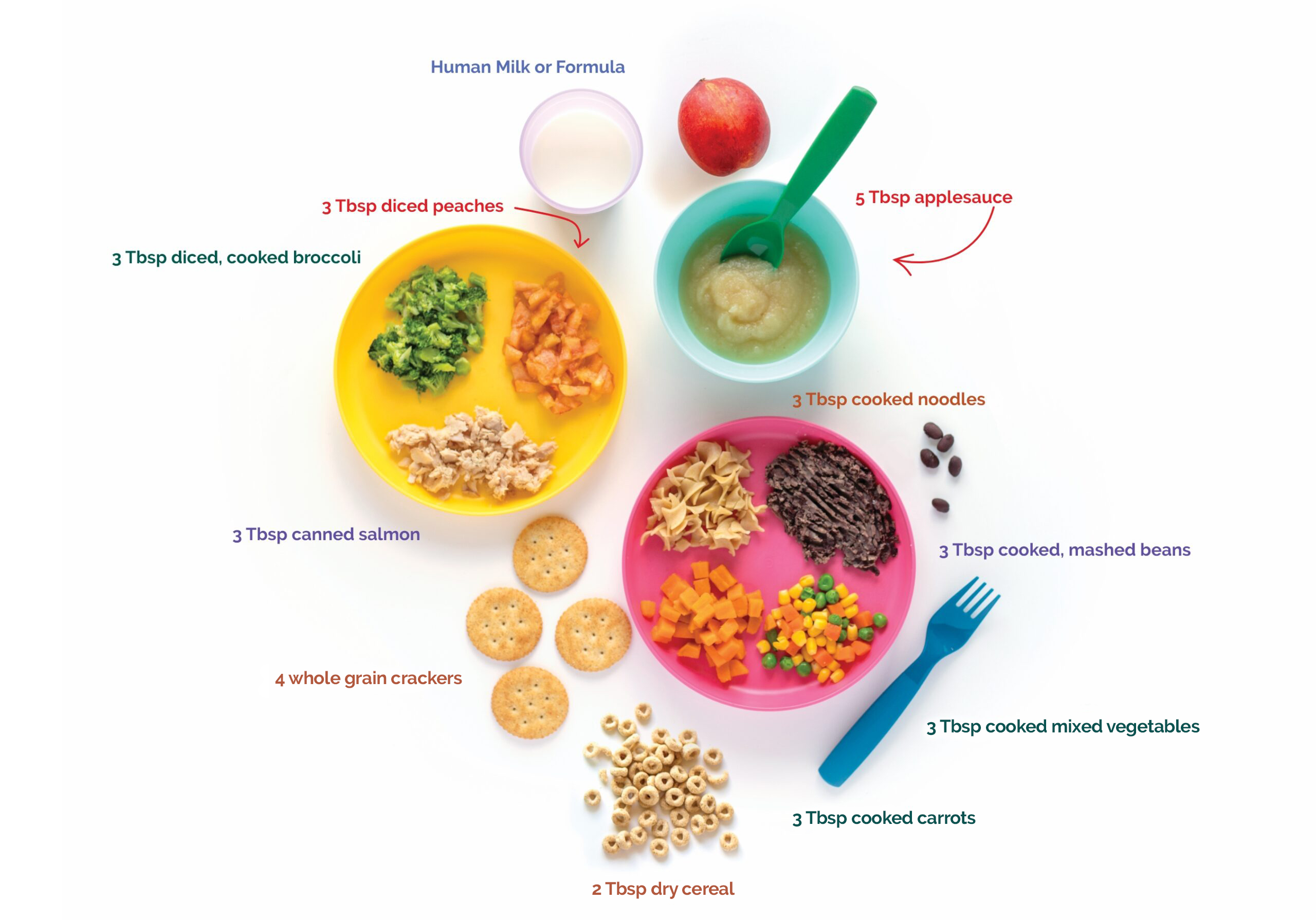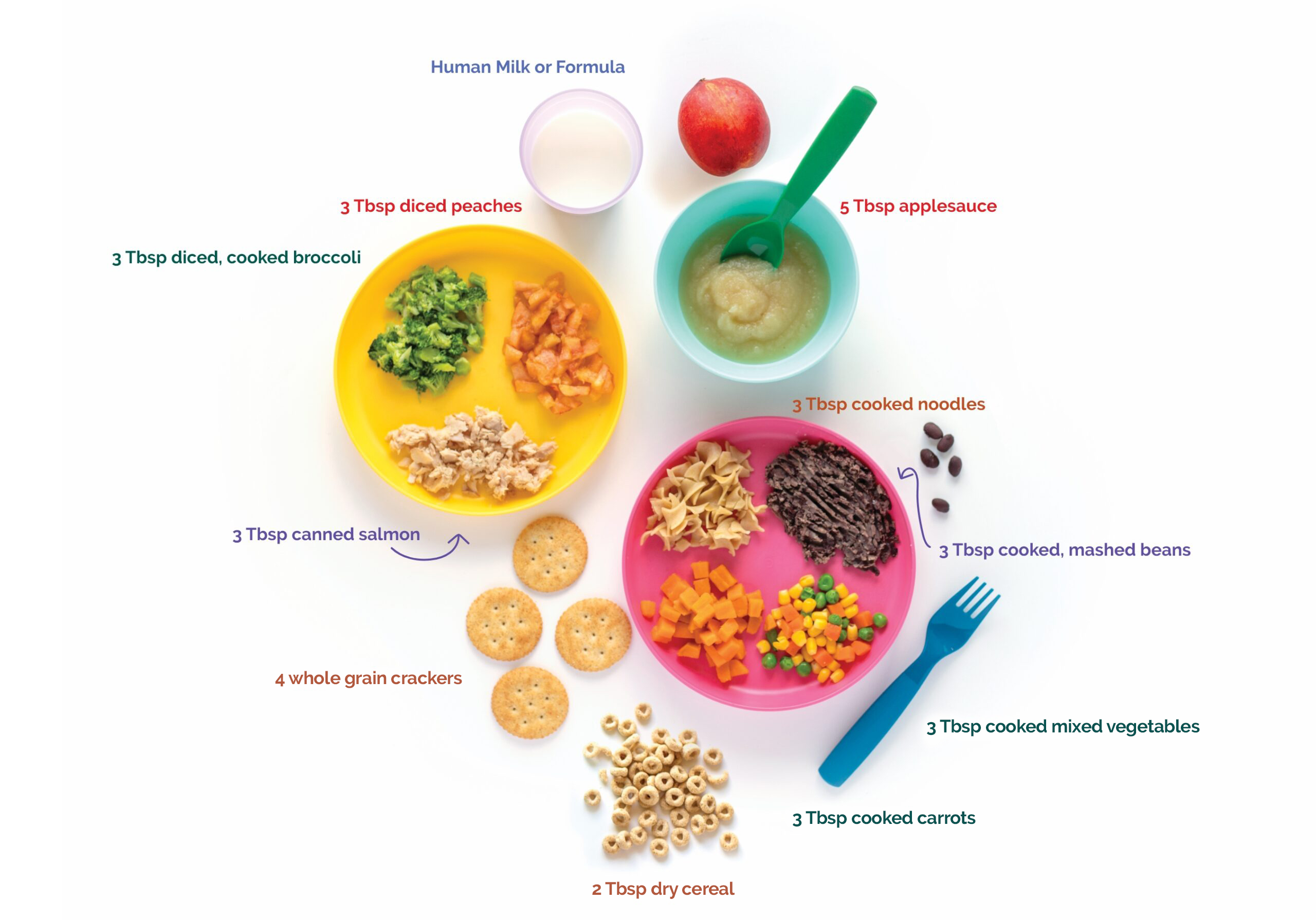Dear Mom,
- Learn about breastfeeding
- Make healthy food choices for you and your family
- Get referrals to healthcare and other community programs
- Learn how to keep your baby healthy and safe
- Buy healthy foods
The tips on this page do not replace your healthcare provider’s advice. Write down questions to ask before you go to your prenatal checkups.
When you visit your local WIC office, you can learn more about healthy eating. We hope you enjoy all that WIC has to offer.
Sincerely,
Your WIC staff
Get Prenatal Care
Prenatal care is health care for pregnant women. A healthcare provider or specially trained nurse checks that you and your baby are okay.
You can expect:
- 1 checkup each month for the first 6 months.
- 2 checkups each month in the 7th and 8th months.
- 1 checkup each week in the 9th month.
- 1 checkup 2 to 6 weeks after your baby is born (postpartum).
Get prenatal care as soon as you think you are pregnant. The above schedule is a guide; it is important to go to all recommended appointments. You can learn more about your baby and how your body is changing.
If you need help to pay for prenatal care, contact your local Medicaid office.

Choose Healthy Foods for You and Your Baby
Your baby grows best when you eat healthy. Choose a variety of foods from all 5 food groups every day.
For a personal daily food plan, visit www.myplate.gov
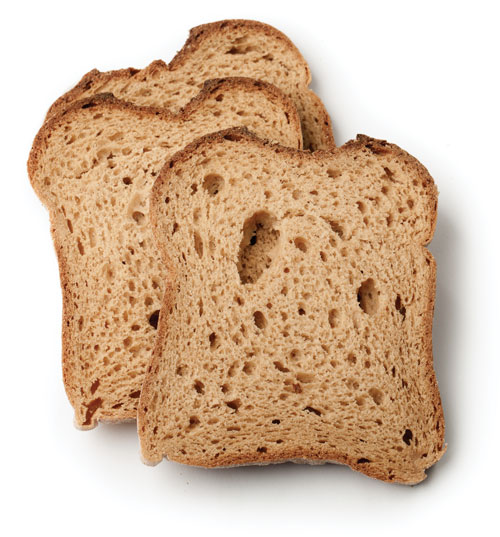
6-8 ounces per day
Examples:
- 1 slice bread or tortilla
- ½ bagel or hamburger bun
- ½ cup cooked rice, noodles or cereal
- 1 cup flake-type cereal
Eat whole grains like:
- Oatmeal
- Whole wheat bread or rolls
- Brown rice
- Whole wheat pasta
- Tortillas (whole wheat or corn)

2½-3½ cups per day
Examples:
- 1 cup raw or cooked vegetables
- 1 cup lettuce or other leafy greens
- ½ cup vegetable or tomato juice
Tips:
- Eat many kinds and colors: dark green, orange, red, yellow, purple, and white
- Add to: scrambled eggs, rice, noodles, salads, and casseroles
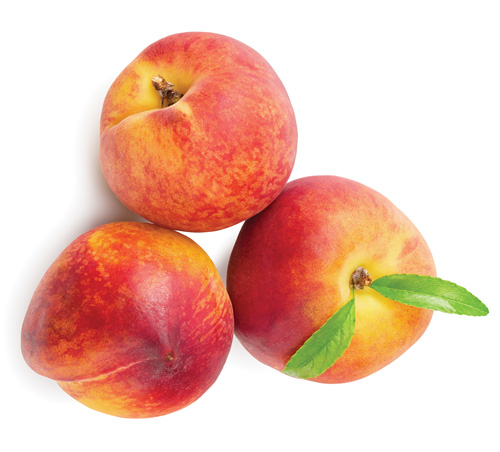
1-1½ cups per day
Examples:
- ½ cup chopped or cooked
- 1 fruit – apple, orange, peach, etc.
- ½ cup 100% fruit juice
Tips:
- Eat many kinds and colors: red, yellow, orange, blue, green, purple, and white
- Put sliced or chopped fruit on cereal, pancakes, pudding, and frozen yogurt
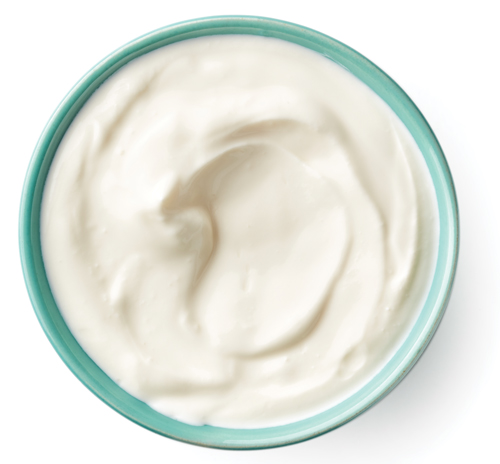
3 cups per day
Examples:
- 1 cup milk
- 1 cup yogurt
- 1 to 2 slices cheese
Tips:
- Choose 1% or non-fat milk
- If it is hard to drink milk, get ideas from WIC
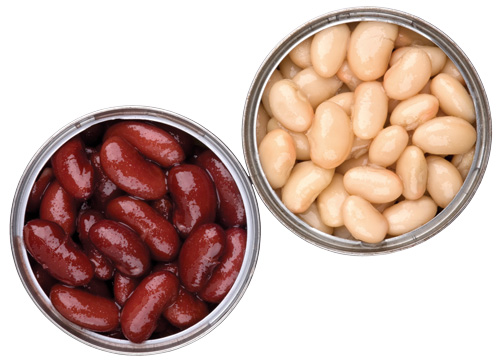
5½-6½ ounces per day
Examples:
- 1 ounce meat, chicken, turkey, or fish
- ¼ cup canned light tuna
- 1 egg
- ¼ cup cooked beans or tofu
- 1 tablespoon peanut butter
Tips:
- A 3-ounce serving is the size of a deck of cards
- Choose lean meats: bake, broil, or grill them
- Eat more beans; ask WIC for recipes
Sample
Menu
You and your baby do best when you eat regular meals and snacks. Here is a sample menu using some foods you can purchase with your WIC benefits.
Here are some examples of what meal and snack portion sizes might look like on your plate.
Breakfast
1 banana
1 cup non-fat or 1% milk
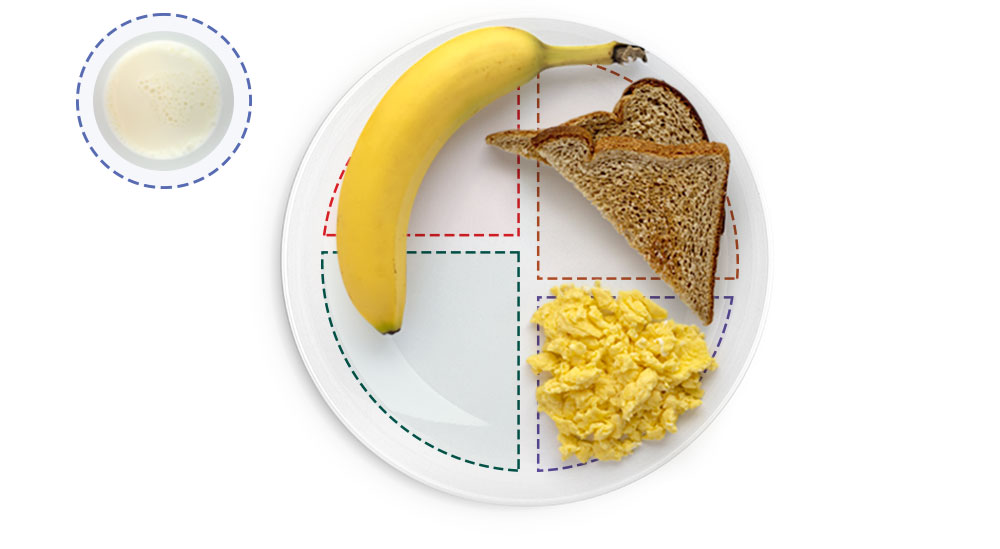
1 slice whole grain toast
1 cooked, scrambled egg
Lunch
½ cup cooked broccoli florets
1 cup water
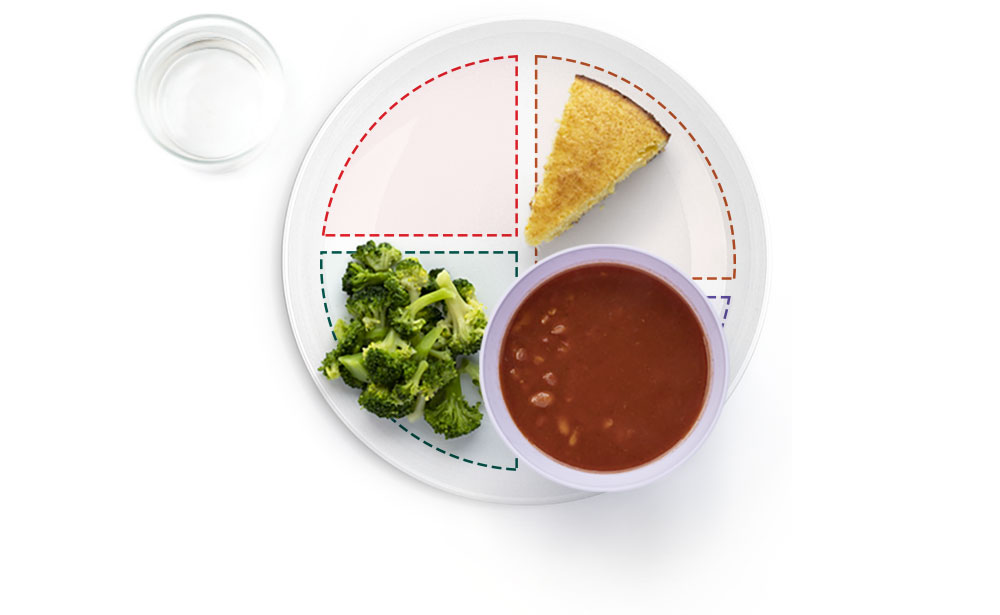
1 ounce cornbread
½ cup tomato sauce
and ¼ cup pinto beans and ¼ cup red beans
Snacks
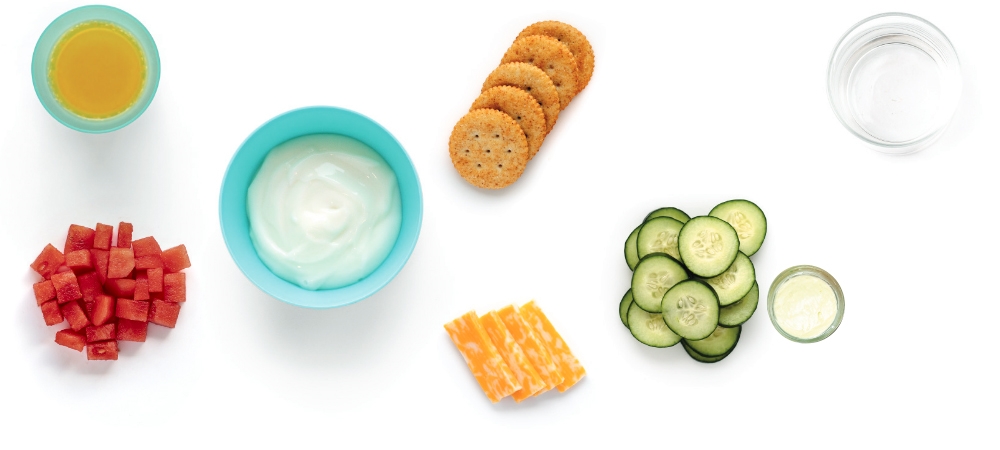
1 cup 100% orange juice
1 cup cut up melon
½ cup low-fat yogurt
5 or 6 whole grain crackers
3 or 4 slices cheese
½ cup sliced cucumbers with 1 tablespoon dressing
water between meals and snacks
Dinner
1 cup mixed, green salad with ¼ cup tomato
with ½ hard-boiled egg with 1 tablespoon dressing
½ cup cooked, sliced carrots
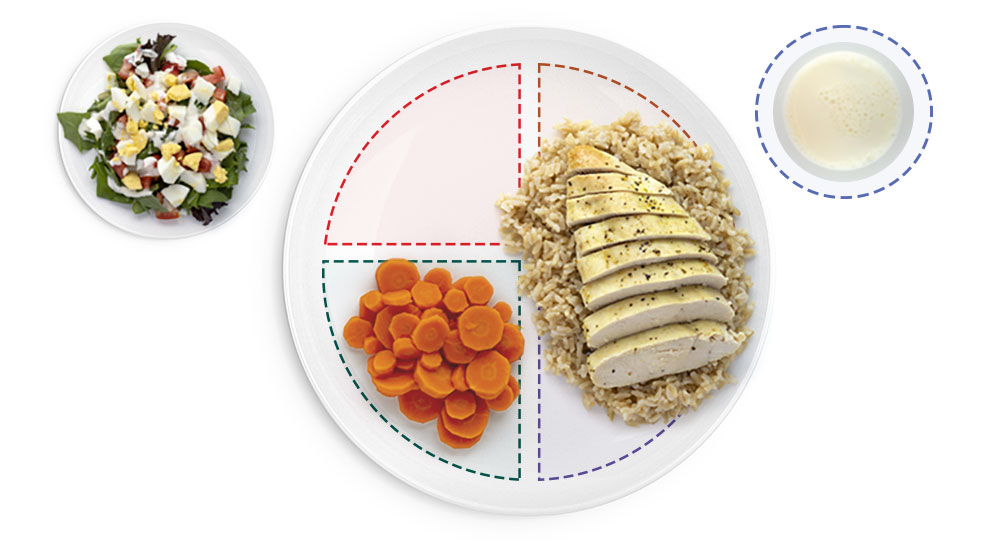
1 cup cooked brown rice
with 3 ounces baked, sliced chicken
1 cup non-fat or 1% milk
Snacks: Tasty, Healthy and Easy
Aim for 2-3 snacks each day. Try healthy snack combos by picking foods from at least two food groups. These balanced snacks will keep you feeling satisfied.
Bread, Cereal, or Other Grain
- Bagel
- Cereal
- Whole wheat or corn tortilla
- Crackers
- English muffin
- Graham crackers
- Oatmeal or grits
- Pita bread
- Raisin bread
- Whole grain bread
- Granola or trail mix
- Popcorn
DAIRY OR PROTEIN
- Cheese
- Cottage cheese
- Frozen yogurt
- Yogurt
- Egg, cooked
- Nuts (like walnuts)
-
Peanut butter or nut butter
- Hummus
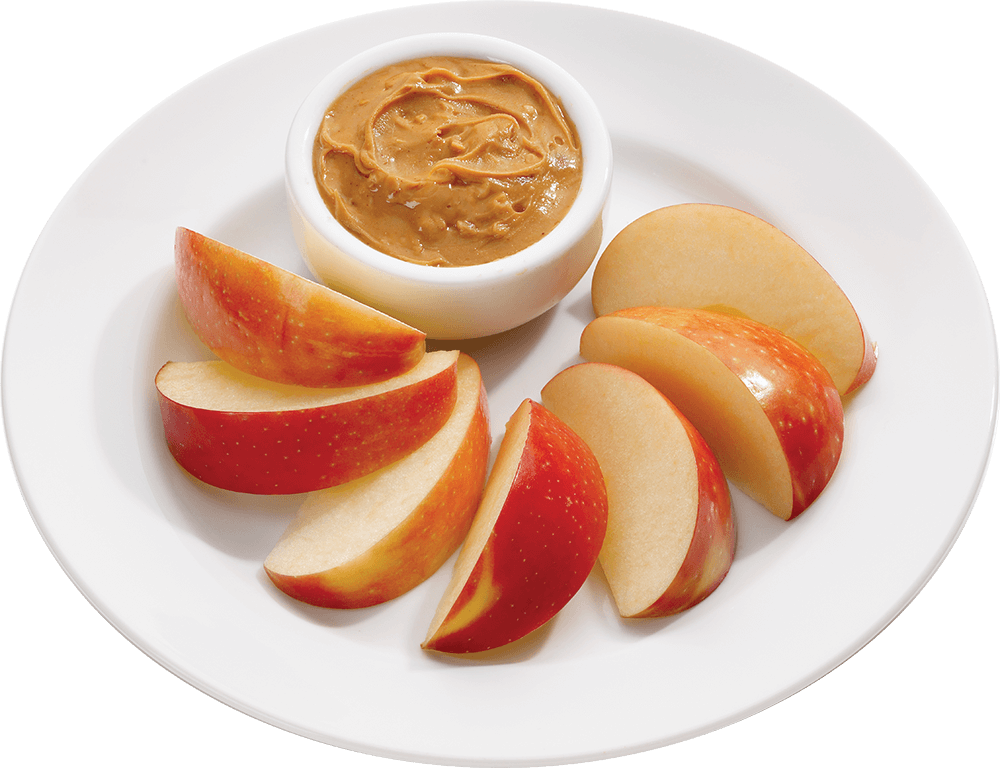
FRUIT OR VEGETABLE
- Broccoli
- Carrots
- Green peppers
- Edamame
- Tomato
- Celery
- Avocado
-
Apple
- Banana
- Grapes
- Melon
- Orange
- Peach
- Pineapple
- Raisins
- Strawberries
Fast Food Restaurant Tips
On the go? Ask for these fast foods:
- Grilled chicken sandwich
- Single hamburger or cheeseburger
- Main dish salad or side salad
- Pizza topped with green peppers, tomatoes and mushrooms
- Bean or chicken burrito
- Baked potato with vegetable and cheese toppings
- Fruit
- Water, low-fat milk or 100% juice


Food Safety Tips
- Wash your hands with soap and water before you eat or prepare food.
- Wash vegetables and fruit with water before eating or cooking.
- Cook beef, pork, chicken, turkey, fish, and seafood to the well-done stage.
- Heat to steaming before eating hot dogs, cold cuts and deli meats like bologna, salami or ham.
- Ask WIC Nutritionist or your healthcare provider what fish is safe and the recommended amounts to eat during pregnancy.
Don’t eat certain foods.
Some foods are not safe for you and your baby when you are pregnant. Do not eat:
- Tilefish, swordfish, king mackerel, or shark
- Raw oysters, or fish like sushi, sashimi, or ceviche
- Undercooked, rare, or raw meat like chicken, beef, or turkey
- Deli meat, spreads, or patés that haven’t been heated to steaming
- Raw or soft-cooked eggs
- Smoked meats
- Uncooked hotdogs
- Feta, blue-veined, Brie, or Mexican-style (queso blanco or queso fresco) cheeses
- Unpasteurized (raw) milk or cheese
- Unpasteurized juice or cider
- Raw sprouts, like alfalfa sprouts
Ask your healthcare provider before you take herbs or drink herbal teas; they may hurt your baby.
Take Prenatal Vitamins
Prenatal vitamins have extra and to help your baby grow. Check to see if your prenatal vitamin has at least 150 mcg of iodine. If the prenatal vitamin you take doesn’t have this amount of iodine, ask your healthcare provider.
Don’t take any other vitamins unless prescribed by your healthcare provider.


Keep Your Teeth Healthy
Pregnant women go through hormonal changes that can impact the health of their mouth.
To keep your teeth and gums healthy, be sure to:
- Brush your teeth (and tongue) at least two times a day
- Floss your teeth daily
- Drink water, not sugary drinks
- Get a dental checkup
Use a soft-bristle toothbrush. Brush gently. If your gums bleed when you brush or floss, tell your healthcare provider.
Be Active for a Healthy Body
Your body stays fit when you move it. If your healthcare provider says it’s okay, keep active. Walking, stretching, and swimming are a few good ways.
Being active will help you:
- Have more energy and feel less tired
- Sleep better
- Work off stress
- Tone your muscles
- Have better posture
Find time to be active for 30 minutes most or all days of the week.
Walk 10 minutes in the morning

Walk 10 minutes in the afternoon

Walk 10 minutes in the evening

30 minutes

Healthy Weight Gain
Your Pre-Pregnancy Weight
Underweight
BMI less than 18.5
Healthy Weight
BMI 18.5-24.9
Overweight
BMI 25-29.9
Obese
BMI greater than or equal to 30
Healthy Weight Gain During Your Pregnancy
28-40 pounds
25-35 pounds
15-25 pounds
11-20 pounds

Weight gain during pregnancy helps your baby grow. First trimester weight gain should be 1-4 pounds. Starting in the 4th month, you may gain about half (½) to one (1) pound a week.
To keep a steady weight gain:
- Eat when you feel hungry
- Choose healthy foods to eat
- Drink water
- Keep active by walking
If your weight gain is:
Just Right
You may lose the weight easier after your baby is born. It can help protect your health and the health of your baby.
Too little
Your baby could be born too small or too soon.
Too much
It may be harder to lose the weight after your baby is born. It could increase your risk of long-term health problems.
If you are expecting twins, triplets or more, talk with your healthcare provider about the weight gain that is right for you.
Keep Your Baby Safe And Healthy
It is recommended to avoid tobacco, nicotine, alcohol (beer, wine, liquor, or mixed drinks), marijuana, and illegal drugs during pregnancy. Each of these products can negatively impact you and your baby’s health.
We know it can be difficult to stop or reduce use of tobacco, nicotine, alcohol, marijuana, and illegal drugs.
If you are struggling to stop or reduce use, there are resources available to you.
You are not alone.
We are here to support you.
Healthy Delaware – Quit Tobacco
For support with quitting tobacco or nicotine use, including free coaching, a free quit plan, and free educational materials visit www.quitnow.net.
For support with quitting alcohol, marijuana, or other illegal drug use contact your healthcare provider or visit www.helpisherede.com.
Ask your healthcare provider before you take medicine to make sure it is safe for your baby.

Pregnancy Discomforts
Your body changes when you’re pregnant. You might feel sick to your stomach the first 3 or 4 months. Some smells and foods might make you throw up.
If you feel sick… (morning sickness):
- Open the window to let fresh air in and stale air out
- Get up slowly when you wake up
- Eat a few crackers before you get out of bed
- Stay away from smells that make you sick
- Eat cold foods if the smell of cooked food makes you sick
- Eat small amounts of food every one or two hours
- Drink liquids, but take small sips
“Morning sickness” can occur anytime of the day.
Even if you feel sick, you still need food and liquids. If you can’t keep anything down, call your healthcare provider.


As your baby grows, you might get an upset stomach when you eat. It might be hard to move your bowels. Talk to your healthcare provider if you get these problems. Don’t take medicine unless advised by your healthcare provider. Here are some tips:
If you have heartburn…(Indigestion):
- Eat 5 or 6 small meals, instead of 2 or 3 large ones
- Avoid fried or greasy foods
- Eat less spicy foods
- Drink small sips of water with your meals
- Walk after you eat
- Avoid caffeine in soda, coffee, or tea
If you’re constipated… (can’t poop):
- Eat foods with fiber like:
- Vegetables
- Fruits
- Beans and peas
- Whole grain cereals
- Whole wheat bread and crackers
- Whole wheat noodles
- Brown rice
- Corn tortillas
- Drink plenty of fluids, like water
- Walk after you eat

Give Your Baby the Best Start – Breastfeed!
Breast milk is all your baby needs for the first 6 months of life. Your milk has the right ingredients in the right amounts to give your baby the healthiest start in life. Breastfeeding is good for you too. Contact your Breastfeeding Peer Counselor for breastfeeding support.
BREASTFEEDING MOMS SAY…
“Nighttime feedings are easier.”
“It saves me time – I don’t need to mix formula or clean bottles.”
“It saves me money – I don’t need to buy formula or bottles.”
“I feel more bonded with my baby.”
“When I breastfeed, I feel proud. My baby grows healthy and strong with a gift only I can give.”
Breastfeeding protects your baby’s health.
Babies who are breastfed have a lower risk of:
- SIDS – Sudden Infant Death Syndrome
- Allergies
- Illnesses, like colds, respiratory, and ear infections
- Obesity
- Diarrhea and constipation
Breastfeeding is good for mom, too.
Breastfeeding helps you:
- Reduce your risk of obesity, heart attack, and stroke
- Lower your risk of breast and other cancers
- Keep your bones strong
- Get back to your pre-pregnancy size quicker
Breastfeeding Facts
- A lot of moms have questions about breastfeeding.
Talk with WIC staff about any breastfeeding concerns you may have. - Breastfeeding whenever your baby is hungry will allow your body to make all the milk your baby needs.
- Holding baby skin-to-skin while in the hospital and after going home helps you make milk.
- Nursing shouldn’t hurt.
If it hurts, get help. Contact your breastfeeding peer counselor or healthcare provider. Click here for a list of peer counselors. - Ask for help at home, especially in the early days.
Ask family and friends to pitch in with household chores and to watch other children. Dad or another family member can hold baby skin-to-skin, help with baths and playtime. Babies need lots of love and cuddling in addition to feeding time. - You can go back to work or school and continue breastfeeding.
Most states have laws that require workplaces to support breastfeeding employees. There are also laws in all 50 states to protect moms when nursing in public. - Moms who nurse can eat their favorite foods!
No special diet is needed.
For more information on breastfeeding, visit wicbreastfeeding.fns.usda.gov
My Breastfeeding Plan At The Hospital
Tell your nurses and doctor that your goal is to exclusively breastfeed your baby. Ask them to follow these guidelines as long as it is medically safe for your baby and you:
Exclusive Breastfeeding: Please don’t give my baby any formula, water or glucose sugar water before speaking to my partner or me.
Skin to Skin: During my stay, I want to hold my baby skin-to-skin as much as possible.
Breast Pumps: If my baby is unable to breastfeed or is separated from me due to medical reasons, I want to use a breast pump as soon as possible. If I need to pump longer than my hospital stay, please remind me to call my breastfeeding peer counselor.
No Bottles or Pacifiers: Please don’t give my baby artificial nipples. This includes pacifiers or any type of bottle.
Breastfeeding Support: Please help me with breastfeeding during the first hour after my delivery.
Take-Home Bags: Please do not send any formula or information about formula home with us when we leave the hospital. Instead, please remind me that I’m giving my baby the best nutrition by choosing to breastfeed.
Make Time for Yourself
Having a baby is hard work! At times you may feel tired, emotional, and grumpy. You might even feel sad. Find time to relax and get some rest. If you feel overwhelmed, ask for help.
Ask for help from family and friends.
Talk to your healthcare provider.
Call the Postpartum Support International Helpline at 1-800-944-4773, visit www.postpartum.net, or text 800-944-4773 (English) or 971-203-7773 (Spanish).
If you want to harm your baby contact www.Helpisherede.com or the Delaware resources below: Call the Delaware Hope Line: 833-9-HOPEDE or Call the Crisis Intervention Service: 800-652-2929 (Northern DE) 800-345-6785 (Southern DE).
To show yourself some love:
- Try to get enough sleep and rest
- Take a few minutes every day just for you
- Spend time with people you enjoy; avoid those you don’t
If you have thoughts of harming yourself or your baby, get immediate help.
Call 1-800-273-8255 for free and confidential emotional support 24 hours a day, 7 days a week.





